Upcoming CCTS Events
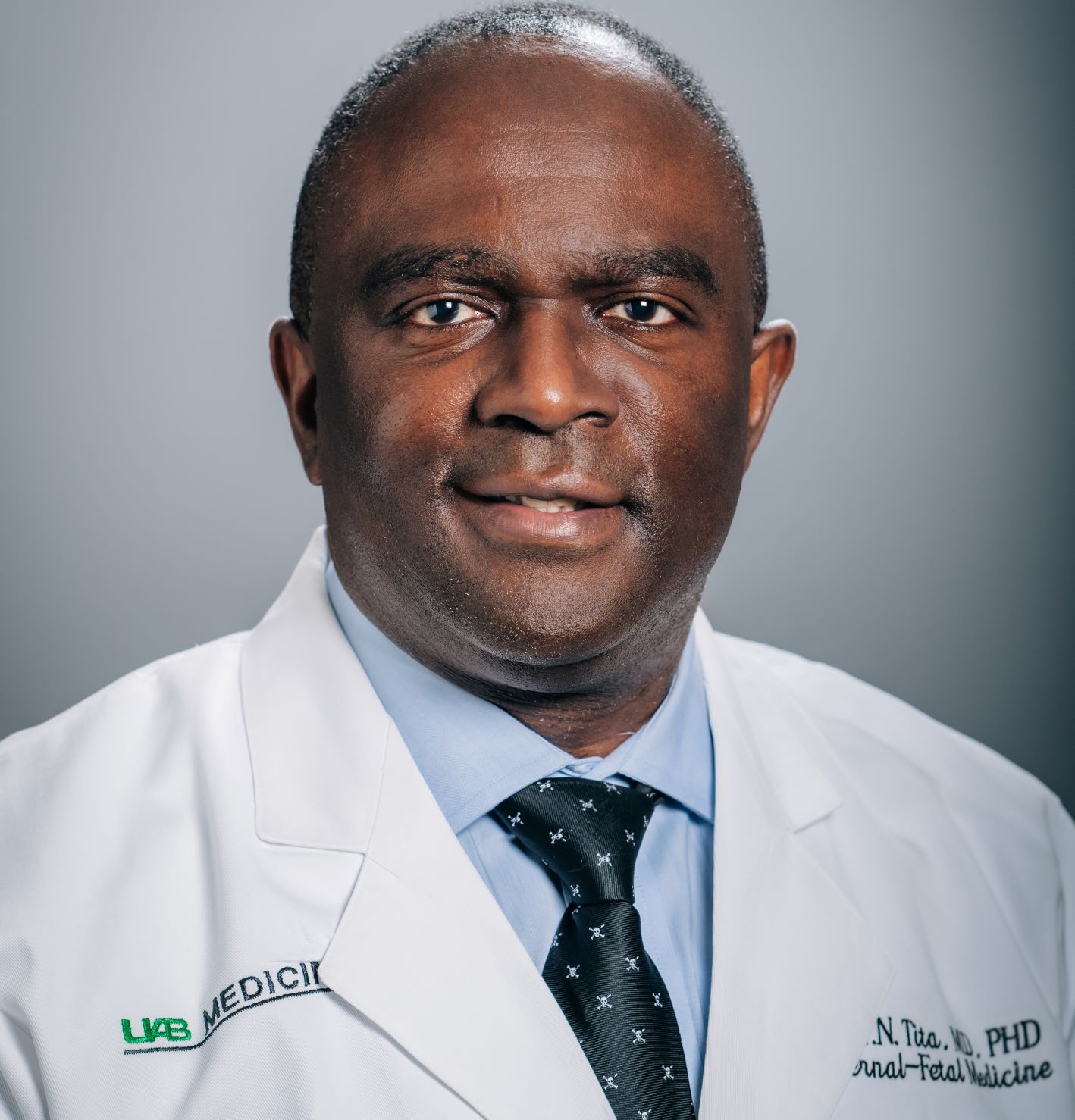 Alan Tita, MD, PhDThe Top 10 Clinical Research Achievement Awards honor groundbreaking achievements in clinical research from across the nation. The competition seeks to identify major advances in the biomedical field resulting from the nation’s investment in health and welfare. The Top 10 award recipients are selected by a CR Forum panel from among clinical research studies published in peer-reviewed journals in 2022. They are based on the degree of innovation and novelty involved in the advancement of science; contribution to the understanding of human disease and/or physiology; and potential impact upon the diagnosis, prevention, and/or treatment of disease.
Alan Tita, MD, PhDThe Top 10 Clinical Research Achievement Awards honor groundbreaking achievements in clinical research from across the nation. The competition seeks to identify major advances in the biomedical field resulting from the nation’s investment in health and welfare. The Top 10 award recipients are selected by a CR Forum panel from among clinical research studies published in peer-reviewed journals in 2022. They are based on the degree of innovation and novelty involved in the advancement of science; contribution to the understanding of human disease and/or physiology; and potential impact upon the diagnosis, prevention, and/or treatment of disease.
Tita is being honored for his leadership in the CHAP (Chronic Hypertension and Pregnancy) study, the most comprehensive trial of chronic hypertension in pregnancy ever undertaken. “The Chronic CHAP trial addressed a decades’ old question regarding not only the safety but benefits of treating chronic hypertension during pregnancy and led to immediate changes in national guidelines” said Tita. “This award recognizes the power of clinical research and collaboration that took literally more than a village. I am grateful to the CR Forum and to all the investigators, staff, healthcare workers and of course the patients that made this trial successful.”
“The Top 10 Clinical Research Achievement Awards honor and celebrate the innovation, tireless efforts and profound contributions that clinical researchers and advocates have made on the health and wellness of humanity,” said Harry P. Selker, MD, MSPH, Chair of the CR Forum and Dean, Tufts Clinical and Translational Science Institute at Tufts University. “We congratulate the 2023 winners for their outstanding efforts.”
About the CHAP Study
The Chronic Hypertension and Pregnancy Project (CHAP) is a multicenter, randomized trial that enrolled 2,408 pregnant women with a primary aim to evaluate the benefits and potential harms of pharmacologic treatment of mild chronic hypertension in pregnancy, a decades-old question that has remained unanswered. Results of this trial were published by the New England Journal of Medicine. CHAP involves several academic centers and hospitals across the United States, leveraging the Center for Clinical & Translational Science’s Partner Network.
About the Top Ten Clinical Research Achievement Awards
Recognizing the need to celebrate our nation's clinical research accomplishments that involve both innovation and impact on human disease, the Clinical Research Forum conducts an annual competition to determine the ten outstanding research accomplishments in the United States. These major research advances represent a portion of the annual return on the nation's investment in the health and future welfare of its citizens.
About the Clinical Research Forum and the Clinical Research Foundation
The mission of the Clinical Research Forum is to provide leadership to the national and clinical translational research enterprise and promote understanding and support for clinical research and its impact on health and healthcare. For more information, visit www.clinicalresearchforum.org.
The Clinical Research Foundation is the charitable arm of the Clinical Research Forum. As a 501(c)(3), gifts to the foundation support the Top Ten Clinical Research Achievement Awards and are tax deductible.
What factors or strategies have made your team successful in patient recruitment?
We have used a community-based recruitment approach. We visit churches, public libraries and participate in community events. We are using multiple recruitment resources like the UAB Reporter, fliers around UAB Hospital, VA Clinic, UAB Highlands, UAB Campus, Recreational Center, Community places - library, recreational centers, churches, etc. We have seen that word of mouth has benefited our study recruitment.
How have you approached retention efforts?
We engage our participants by attending all the visits. Our participants come over the weekend for the visits, and it is sometimes difficult for them to get parking. We assist them with navigating the parking and make them comfortable with the study and the team. We do frequent calls to check on them and listen to any concerns they may have. We have had a few participants who enrolled in the study because of a family history of heart disease, etc. They like to tell stories and the fun activities they do! Listening to the participants makes them feel valued, and it helps with retention.
How did you design your strategy to create the groundwork for your success? How did the tools provided by the CRSP team help in your planning?
Our clinical research coordinators have experience in community-based research, which helped our team to develop recruitment strategies. We always talk about how we can improve recruitment for all our studies. With the new recruitment tools - the Feasibility Assessment Form and the UAB Recruitment and Retention worksheets, help us foresee the recruitment challenges with which we can increase the recruitment effort to the resource that gives us the most benefit. Our team also attends the CCTS lunch and learn sessions which give us ideas on study recruitment and retention.
How does your team celebrate success together? Our team meets once a week. During these meetings, we discuss milestones, challenges and how to reduce participant burden. Our lab also meets outside work hours to celebrate both professional and personal achievements.
---
The Clinical Research Support Program team will launch the next round of the Gold STAR Awards ahead of the next CCTS Lunch and Learn, which is scheduled for April 11th from 11:30am-1pm. Email your completed Feasibility AND Recruitment & Retention worksheets to
Questions about the Recruitment and Retention Worksheet or the other Clinical Research Support Program offerings mentioned? Visit the Clinical Trials Kiosk or reach out via email to
The American Medical Informatics Association recently selected Hope Gray, MTS, BCC, as one of six new appointees to the JAMIA Student Editorial Board. Hope Gray is a doctoral student in the Department of Health Services Administration at the University of Alabama at Birmingham and a recent Predoctoral Clinical/Translational Research Program Trainee with the CCTS.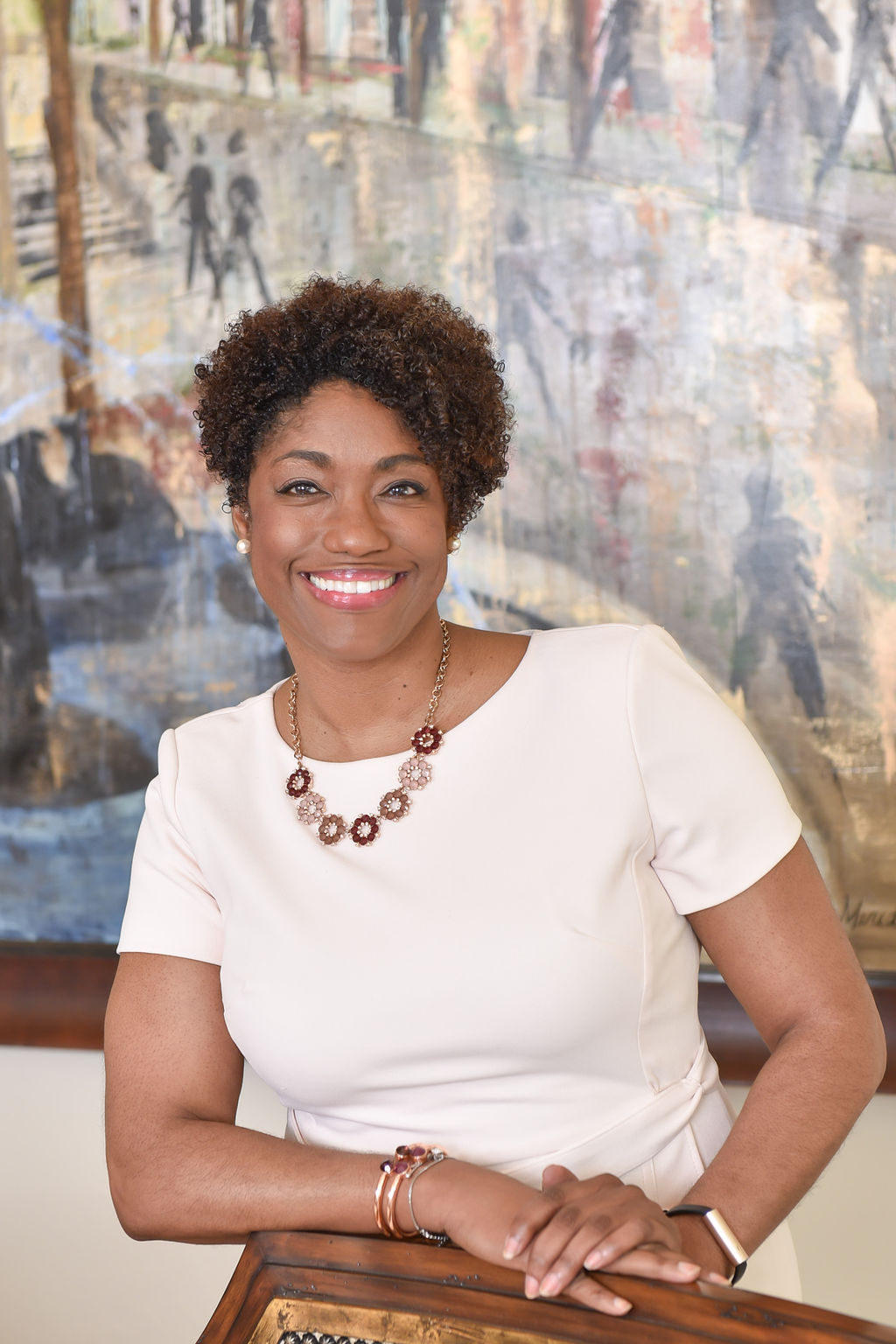
JAMIA is a highly-regarded peer-reviewed journal for biomedical and health informatics produced by the American Medical Informatics Association. The JAMIA editorial team reviews articles covering the full spectrum of activities in the informatics field, including the areas of clinical care, clinical research, translational science, implementation science, imaging, education, consumer health, public health, and policy. JAMIA's articles describe innovative informatics research and systems that help to advance biomedical science and to promote health. "I am so honored to be selected to be on the SEB to gain feedback about my reviews and learn about the operation of a scientific medical journal firsthand” said Gray. “I believe this opportunity will be pivotal for my career development as an independent researcher in biomedical/clinical informatics.” In her new role, Gray will review 6 JAMIA manuscripts each year (two-year term), receive some individualized feedback on her reviews, attend editorial meetings, and become involved with JAMIA’s Journal Club.
Gray was recommended for the board by her mentor James Cimino, MD, FACMI, FACP, FAMIA, CCTS Associate Director and Director of the UAB Informatics Institute. “I am very proud to have her become the first UAB student to hold this important position. This opportunity will advance both her leadership and recognition in this field” said Cimino. Gray’s academic advisor, Sue Feldman, RN, MEd, PhD, FACMI, and Director of UAB’s Graduate Program in Health Informatics also recognizes the significance of the opportunity. “This is a significant accomplishment for Hope and her career development. Hope cares deeply about contributing to the health informatics profession and this is yet another example of her willingness to do so. I look forward to her growth from this amazing opportunity.”
Gray started her career as a computer systems analyst and then became a board certified Chaplain. Gray has received a Master of Theological Studies from Samford University Beeson Divinity School, and a Bachelor of Science in Computer Science from Stillman College. The combination of her education and experience led to her interest in health informatics. She is currently pursuing a PhD in Administration for Health Service/Health Informatics at UAB. During her time at UAB, Gray secured a research fellowship with the Center for Clinical & Translational Science for the 2021 – 2022 academic year. She was then selected for an internship with Health Level Seven (HL7®) International in 2022. Gray also serves as President of the Information Systems Doctoral Student Association (ISDSA) for The PhD Project. Gray’s goal is to continue her work as an independent researcher and to join faculty instruction in health and clinical informatics.
CCTS Partner Institutions are among the top NIH-funded institutions in the country, so the policy will affect many investigative teams. Adherence to the policy is critical to receiving NIH funding in the future, and the benefits of following the policy are numerous: Following a DMS will increase the rigor, reproducibility and transparency of research and create open access to data.
How this will affect research
Implementing the policy means that each principal investigator will have to create a data management plan in order to submit a grant application. Investigators will be expected to maximize sharing of the data generated from NIH-funded research by depositing it in an appropriate data repository. Each plan must address six elements:
1. Describe the data and metadata that will be used or generated, and which data will be shared.
2. Describe any specialized tools, software or code necessary to access shared data.
3. Explain which data standards will be used.
4. Name the data repository and state when data will be shared.
5. Explain any limitations to data sharing and any protective measures for sensitive data.
6. Delegate who in the research group is responsible for overseeing the DMS.
At the CCTS Hub, the UAB Office of Sponsored Programs will verify the inclusion and review the plan prior to submission.
Support for Investigative teams
A recent webinar hosted by the Center for Clinical & Translational Science addresses specific details on how to prepare and is archived for review on the CCTS Video Channel, and the UAB Libraries website contains detailed information and links to resources. The CCTS has also partnered with successfully funded investigators from across its Partner Network to develop this compendium of best practice grant writing samples.
Katie Bradford
December 5, 2022

Over the next few weeks, we will be introducing each of the 2022 CCTS TL1 Trainees, to allow the greater CCTS community to get to know more about these investigators and their research. Interested in applying for the 2023 Predoctoral Clinical/Translational Research Program (TL1) cycle? Applications are open through December 15, 2022. Learn more.
-
Madeline Behr
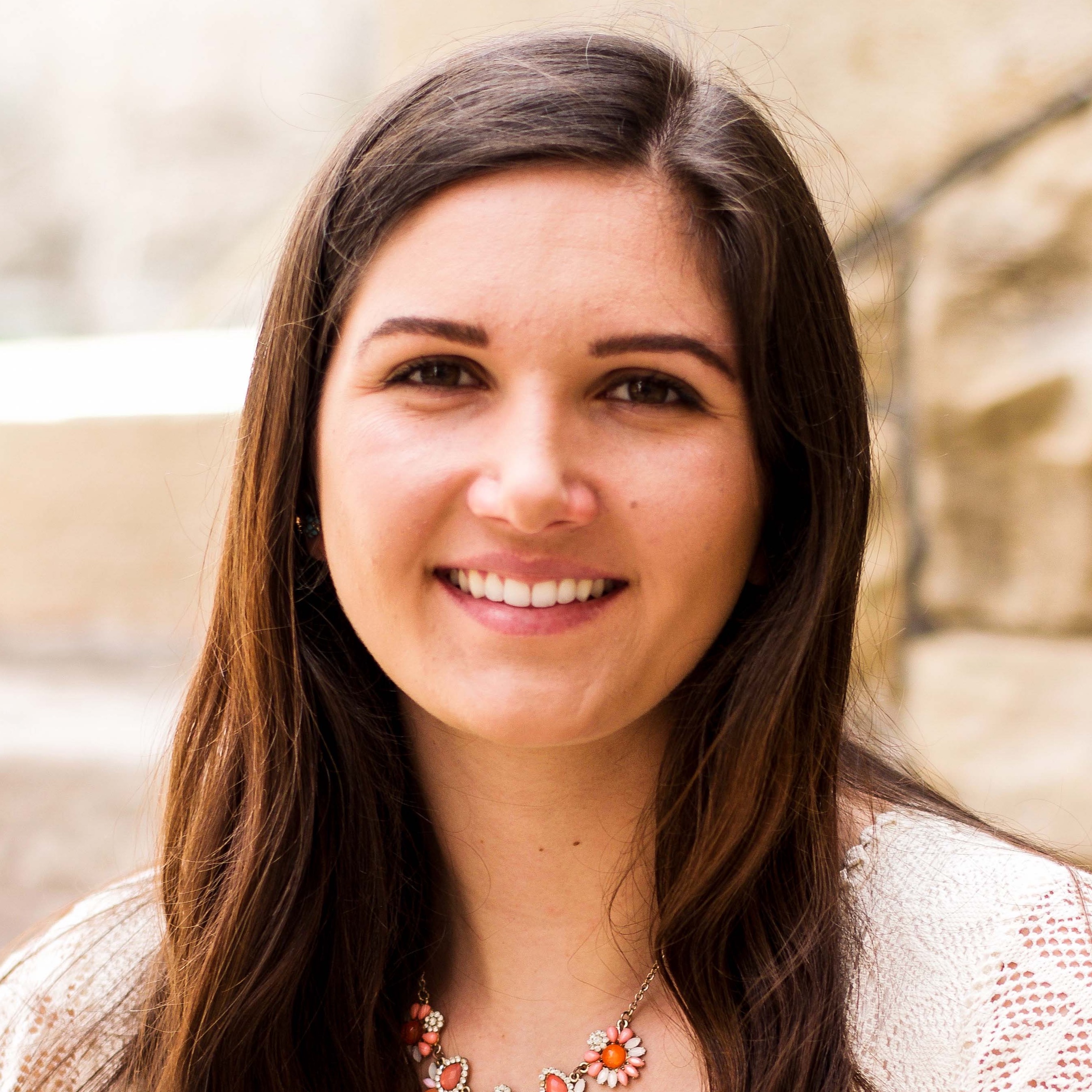 Madeline Behr
Madeline Behr
Tulane University
School of Science and Engineering
Biomedical Engineering
Research Focus: “I am focused on utilizing novel ex-vivo microscopy mechanisms to increase diagnostic information available to clinicians at the point-of-care throughout the prostate cancer management process. To achieve this, I am pursuing the creation of digital histology slides for pathologic review which would alleviate the inherent time-delay associated with standard histopathology. Advancements in digital histology can allow for diagnoses from prostate biopsies to be obtained at a speed that is compatible with the combination of diagnostic and treatment procedures.”
How did you become interested in this opportunity with the CCTS? “I have a background in engineering and have grown to be very passionate about biomedical engineering, especially as it relates to translation into a clinical setting. As I am approaching the conclusion of my Ph.D., I wanted to expand my knowledge of the current climate of clinical and translational research around the country to better decide what my next step will be upon completion. I am very fortunate to have the CCTS TL1 training program to aid me in my pursuit of this.”
Here’s how I plan to leverage this time with the CCTS: “I am incredibly fortunate to have my protected time through the CCTS TL1 training program. I intend to utilize this time to improve my translational knowledge beyond the scope of what I have utilized for my research projects in my Ph.D. to be better prepared to enter my career.”
Favorite thing to do in your spare time? “I spend as much time as I can outdoors, doing whatever the weather permits. I am an avid beach volleyball player and try to vacation to Colorado or Utah to snowboard or hike with my family whenever I can. In New Orleans, I spend my spare time at the park playing SpikeBall, slacklining, or just relaxing reading a book!”
Favorite Podcast: “I really enjoy listening to story-telling podcasts to relax. I have been listening to “Myths and Legends” for several years and have loved hearing mythology and folklore from around the globe. It is a fun insight into the history and culture of various groups of people.” -
Caroline Brantley
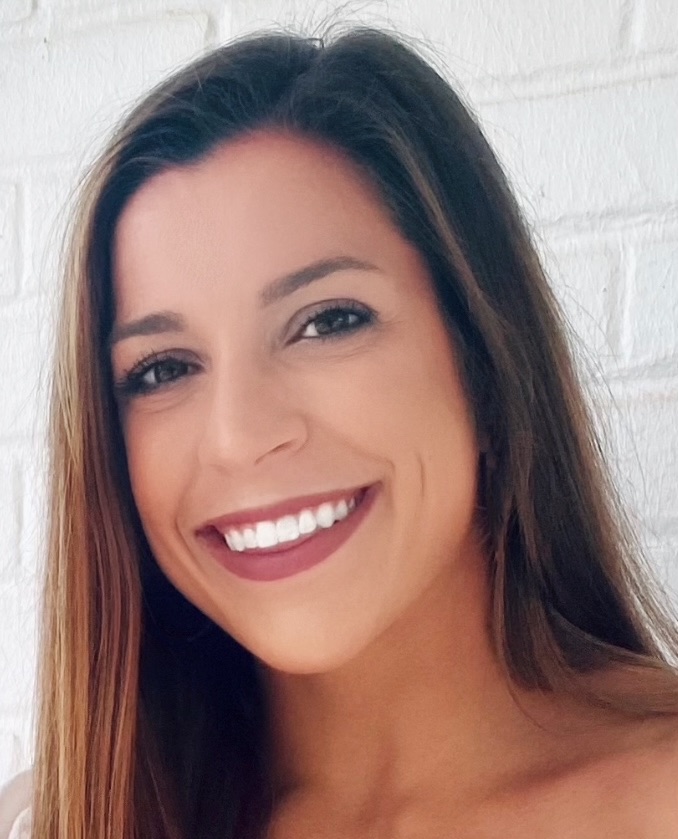 Caroline Brantley
Caroline Brantley
University of Alabama
College of Human Environmental Sciences
Human Nutrition and Hospitality ManagementResearch Focus: My research interests are focused on supporting behavior change and improving child health by exploring environmental factors that contribute to obesity. Such objectives are necessary in order to overcome the childhood obesity epidemic, as we must first better understand factors such as stress and parental influences, in order to better advance interventions and programs.
Here’s how I plan to leverage this protected time with the CCTS: I am incredibly fortunate to have my protected time through the CCTS TL1 training program. I intend to utilize this time to improve my translational knowledge to be better prepared to enter my career.
Research Impact: My research can allow us to better understand the parent-child relationship of not only typically developing children but also children with Down syndrome and help develop well-designed interventions for these populations.
What keeps you motivated? Seeing how excited caregivers of children with Down syndrome are to participate in research and their willingness to help expand our knowledge and help develop future interventions.
Favorite thing to do in your spare time? In my spare time I enjoy working out and competing in CrossFit and spending time with friends and family.
-
Jake Doiron
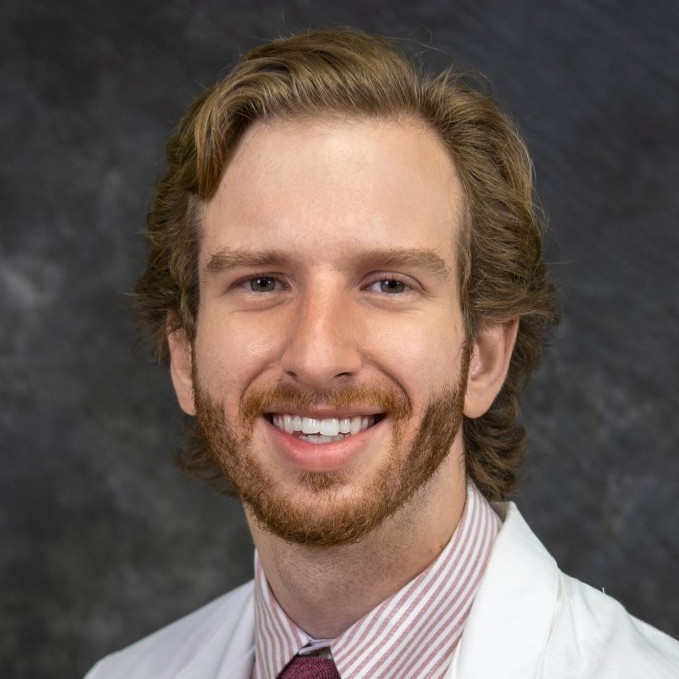 Jake Doiron
Jake Doiron
LSU Health Sciences Center
School of Medicine
Pharmacology and Experimental TherapeuticsResearch Focus: My research interest is in elucidating the mechanisms of heart failure with persevered ejection fraction and discovering novel therapeutics to remediate this debilitating condition. Specifically, my focus is on the role of hydrogen sulfide in cardiovascular disease and how it can be manipulated as a therapeutic intervention.
Why my science matters to me: Heart failure with preserved ejection fraction is a condition with a high 5-year mortality rate and low quality of life that similarly has no FDA-approved treatment options. Given how challenging and devastating the condition is, my research matters to me because I like taking on challenging and complex topics where new innovations are needed.
What are your long-term goals/plans? I plan on becoming a functional physician-scientist, where I can use my clinical experience to influence the research topics I bring back to the lab.
My Dream Career/Job: Professional food critic
Favorite thing to do in your spare time? Playing and watching soccer!
-
Han Eckenrode
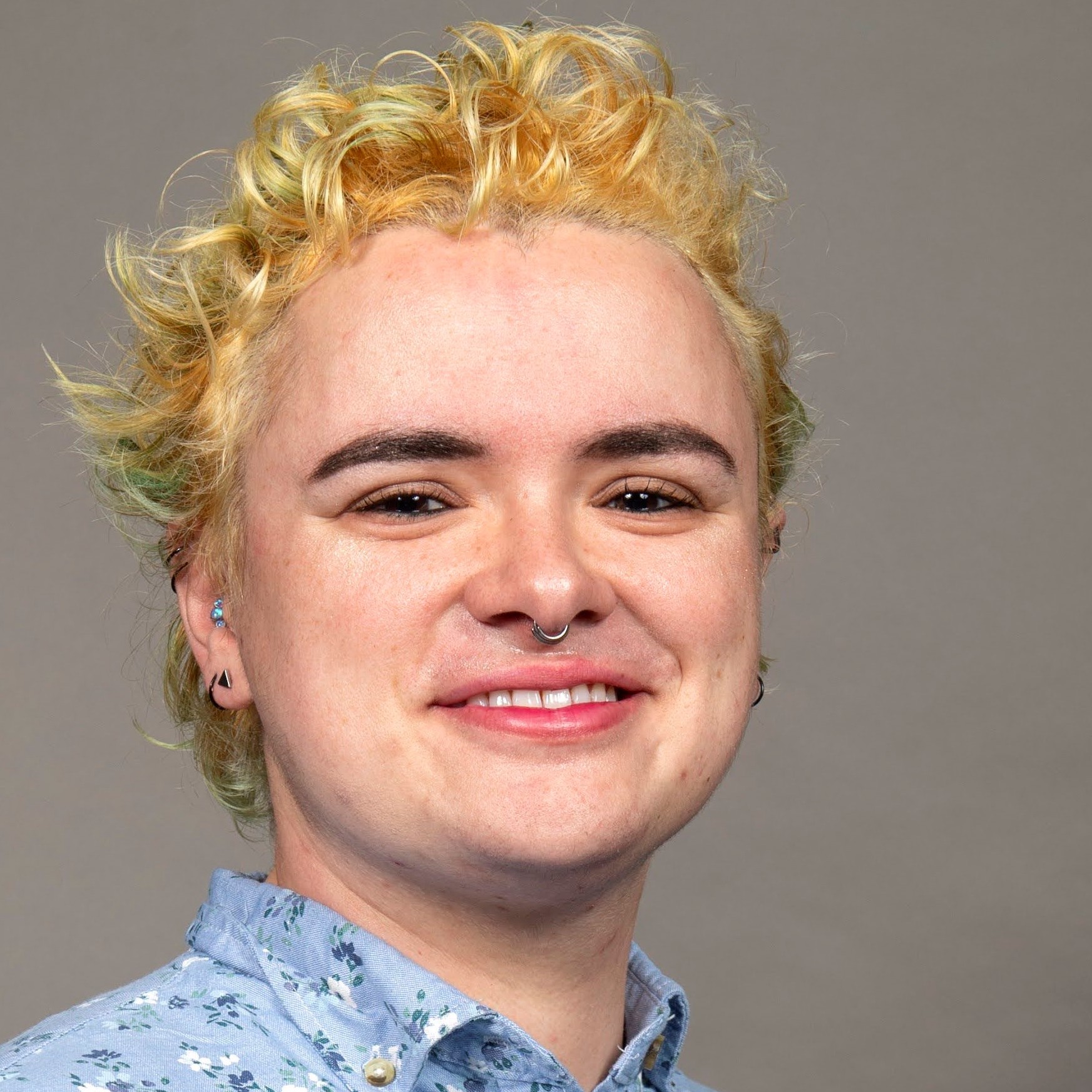 Han Eckenrode
Han Eckenrode
University of Alabama at Birmingham
Graduate Biomedical Sciences
Nephrology
Research Focus: “We know that, in cisgender patients, there are sex differences in both kidney physiology and pathobiology, like in Chronic Kidney Disease (CKD). I’m looking at how gender affirming hormone therapy (GAHT) affects these differences in transgender patients.”
Why my science matters to me: “I’ve always wanted to help people, and as a nonbinary person, I think that starting with my community, which has been historically overlooked or excluded in many aspects of scientific research, is a great start.”
Research Impact: “My hope is that my research ultimately leads to more visibility of transgender specific clinical concerns, as well as updated, trans-inclusive clinical recommendations.”
My historical hero: “Marsha P. Johnson”
What keeps you motivated? “Chosen family, seeing how excited LGBTQ+ folks are when I explain what I’m working on, and lots of other things!” -
Charles Gagnon
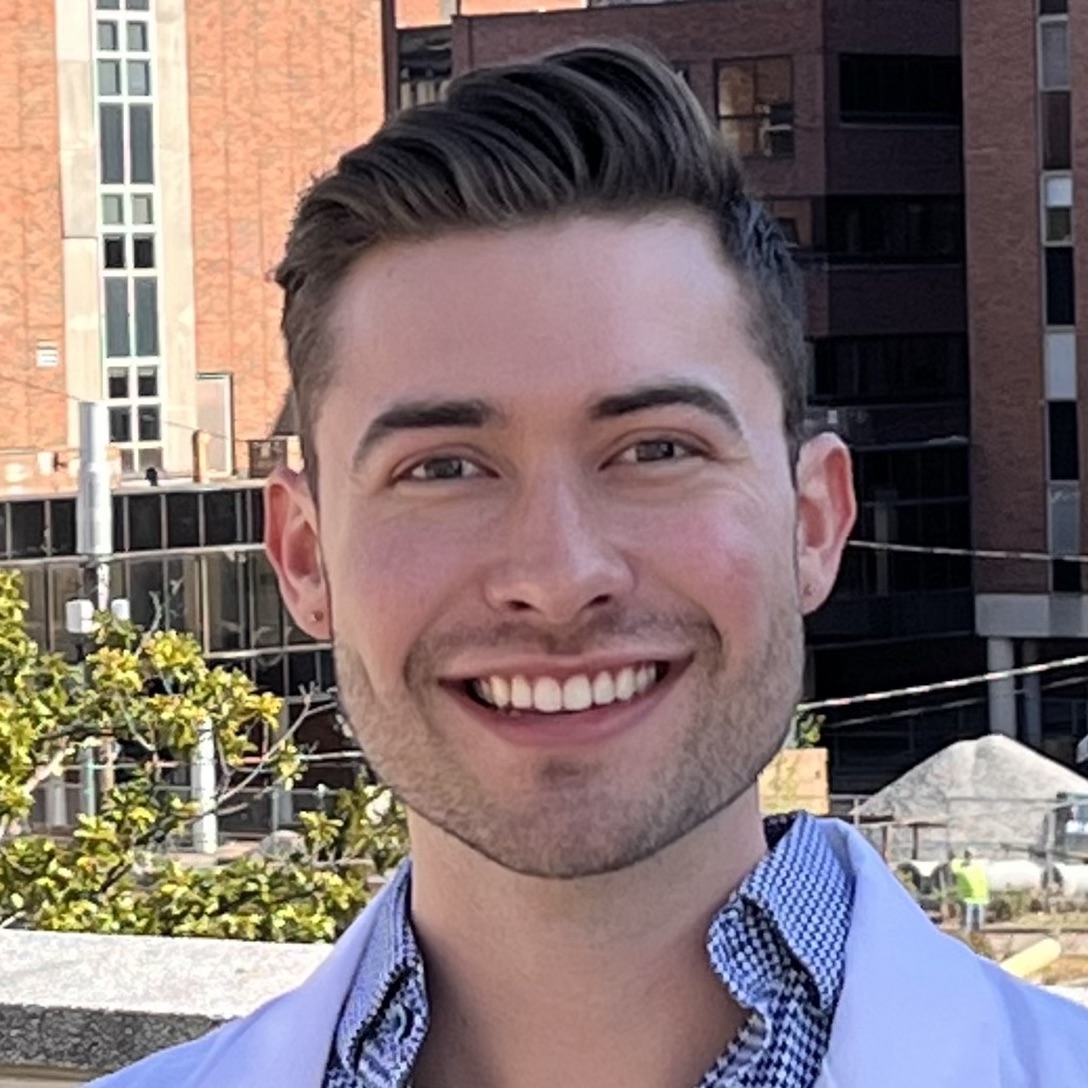
Charles Gagnon
University of Alabama at Birmingham
Heersink School of Medicine
MedicineResearch Focus: I am currently researching pediatric diabetes with the help of Dr. Ambika P. Ashraf in the division of Pediatric Endocrinology and Diabetes. Specifically we are focused in investigating children with “double diabetes,” who are children that are affected by both type 1 and type 2 diabetes mellitus.
How I became interested in this opportunity with the CCTS: I became interested in this opportunity with the CCTS during my second year of medical school. I had been really enjoying my research projects at that time but felt the need to spend a year dedicated to strengthening my skills in conducting research projects. Luckily, I had heard about the TL1 program from a fellow classmate who had been a TL1 trainee from the year prior. I felt like this opportunity was perfect for my situation and decided to pursue the TL1 program.
Here’s how I plan to leverage this protected time with the CCTS: Having this opportunity with the CCTS has been perfect for me to understand, on a deeper level, how to conduct research projects. During this year, I am a getting a Master of Science in Public Health (MSPH) while performing my mentored research projects. With my MSPH, I have been learning so much on the realm of research that has already benefited me, such as learning how to analyze patient data with statistical software and how to design an effective research study. In addition, having protected time to conduct research has taught me about the logistics of performing research such as crafting and submitting manuscripts for publication.
What keeps you motivated? What keeps me motivated is my health. I have a few chronic illnesses such as Addison’s disease, Hashimoto’s thyroiditis, and stage 1 type 1 diabetes mellitus. With these ailments, it helps remind me of other patients who are afflicted with similar obstacles. I use this motivation to stay passionate in the hope of enhancing the quality of life of patients with the impact of my studies and research projects.
Favorite thing to do in your spare time? My favorite thing to do in my spare time is to go mountain biking. My favorite spot in Birmingham is Oak Mountain State Park. I like to bring my headphones and listen to audiobooks while I ride.
-
Amin Izadpanah
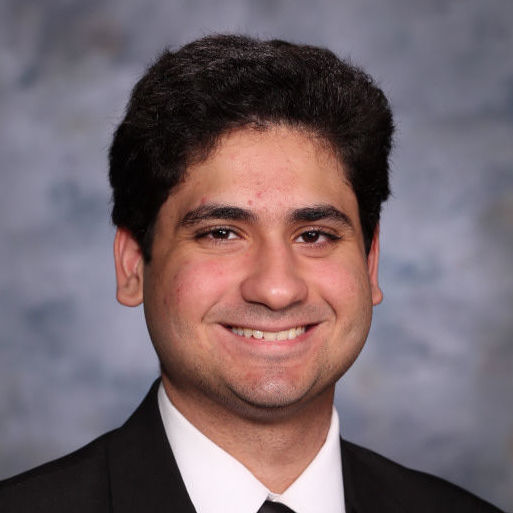
 Amin IzadpanahTulane UniversitySchool of Medicine
Amin IzadpanahTulane UniversitySchool of Medicine
Biomedical SciencesResearch Focus: Following injury, several organs and tissues fail to fully regenerate. Instead, repair usually results in nonfunctional fibrosis or scarring. I am interested in understanding mechanisms underlying regenerative and nonregenerative healing, and developing therapeutics to promote regenerative outcomes during tissue repair.Why my science matters to me: I am interested in science because it allows the opportunity to better understand challenges, design innovative solutions, and ultimately impact patient care.
How I became interested in this opportunity with the CCTS: The CCTS offers a highly engaging, immersive experience that is ideal for translational science training.
Favorite Movie or TV Show: Citizen Kane
Favorite thing to do in your spare time? Soccer
-
Indonesia Jordan
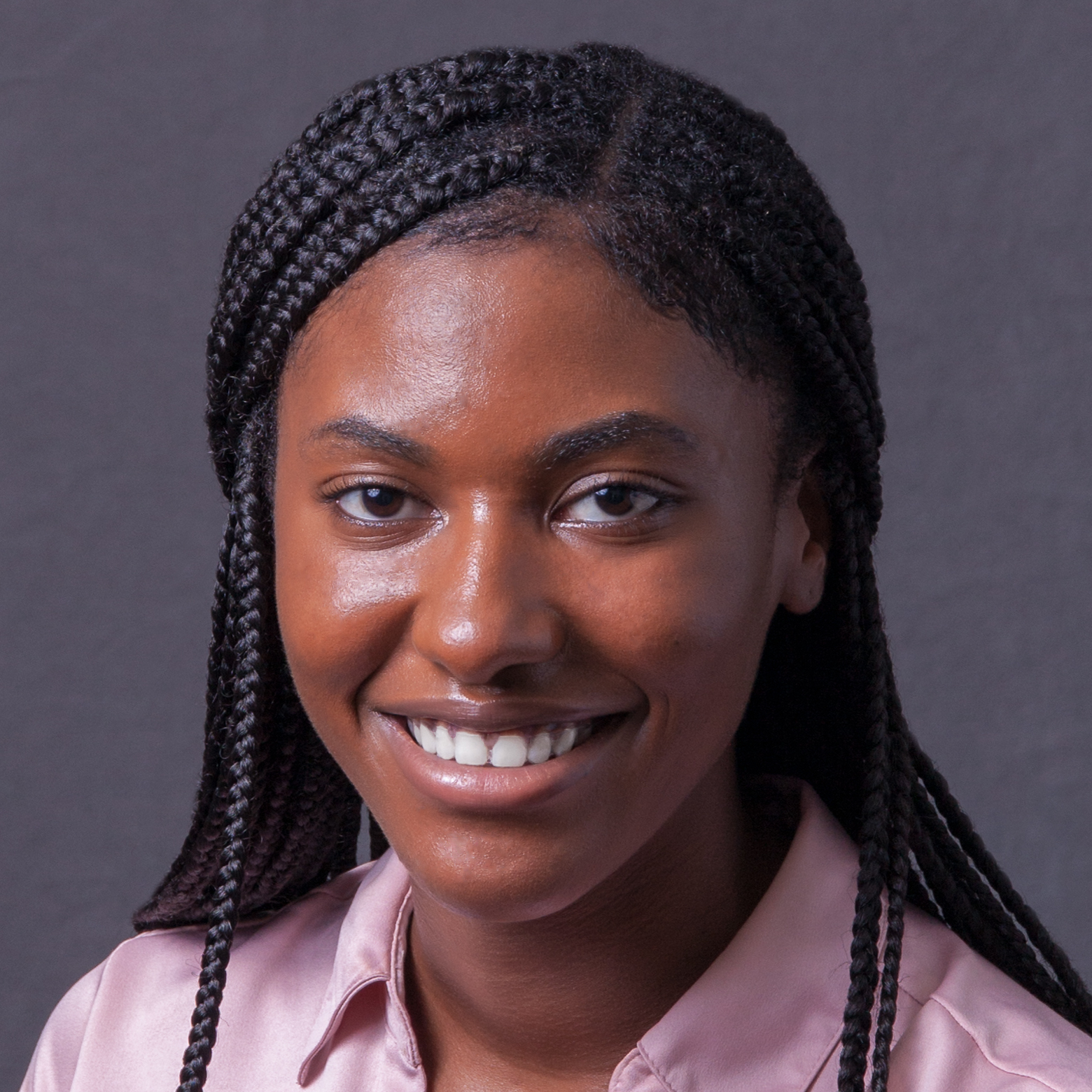 Indonesia Jordan
Indonesia Jordan
University of Alabama at Birmingham
College of Arts and Sciences
PsychologyResearch Focus: My research investigates markers of inflammation in the brain and blood to understand how they are involved in the pathophysiology of Chronic Fatigue Syndrome and Long-Covid.
Why my science matters to me: I’ve always felt that the way to help people was to be involved in science that can impact our understand of health and health outcomes, especially in minorities.
What are your long-term goals/plans? I have always had a passion for teaching and mentorship and hope to continue do research and teach.
Here’s the possible impact of my research: We are still trying to understand why certain people are more susceptible to having Long-Covid and what the cause of these lingering symptoms are. There are a projected millions of people that possible will have this and I think understanding what is happening in the brain is the key. Understanding if the is long lasting inflammation in this group of people will provide information to figuring out how to treat this population.
My historical hero: Katherine Johnson
What keeps you motivated? I am a first-generation college student and growing up I didn’t see my women that looked like me go to college, let alone get a PhD. So there are a few things that motivate me: 1) people have told me that I am dreaming to big, but my nieces are watching me follow my dreams and I want them to know that they can do anything and 2) to show all the black and brown young women from hometown that we belong in STEM!
Favorite Movie or TV Show: I am an avid binge watcher, but my favorite shows to watch and re-watch are Criminal Minds and S.W.A.T.
Favorite thing to do in your spare time? I like to travel and try to plan trips throughout the year as a semester ending reward. Outside of travel I am often found cooking, reading, binge watching tv, at the gym, or playing volleyball.
-
Braxton Linder
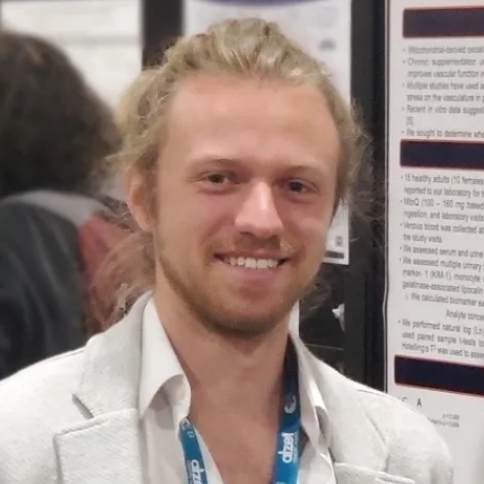 Braxton Linder
Braxton Linder
Auburn University
College of Education
KinesiologyResearch Focus: My research interest is to use interdisciplinary approaches to investigate cardiovascular physiology and immunology to better understand how health behaviors (e.g., diet and physical activity) influence the interaction between the cardiovascular and immune systems and their subsequent impact on human health and performance.
Why my science matters to me: As I have been able to grow and develop my own research interests, there seems to be a gap in our knowledge on how the regulatory functions of immune system and training and detraining adaptations affect each other. I think this is an overwhelming, but exciting, frontier to investigate.
What are your long-term goals/plans? My long-term goals are to finish my PhD, secure a postdoc position, and direct my own laboratory as a research faculty.
Favorite Movie or TV Show: Favorite movie is The Princess Bride, and favorite TV show was Parks and Rec before it got removed from Netflix.
Favorite thing to do in your spare time? In my spare time I am usually convincing my friends, lab mates, and coworkers into weekend golf (even though most of us are no good) and brunch-like activities.
-
Troy LoBue
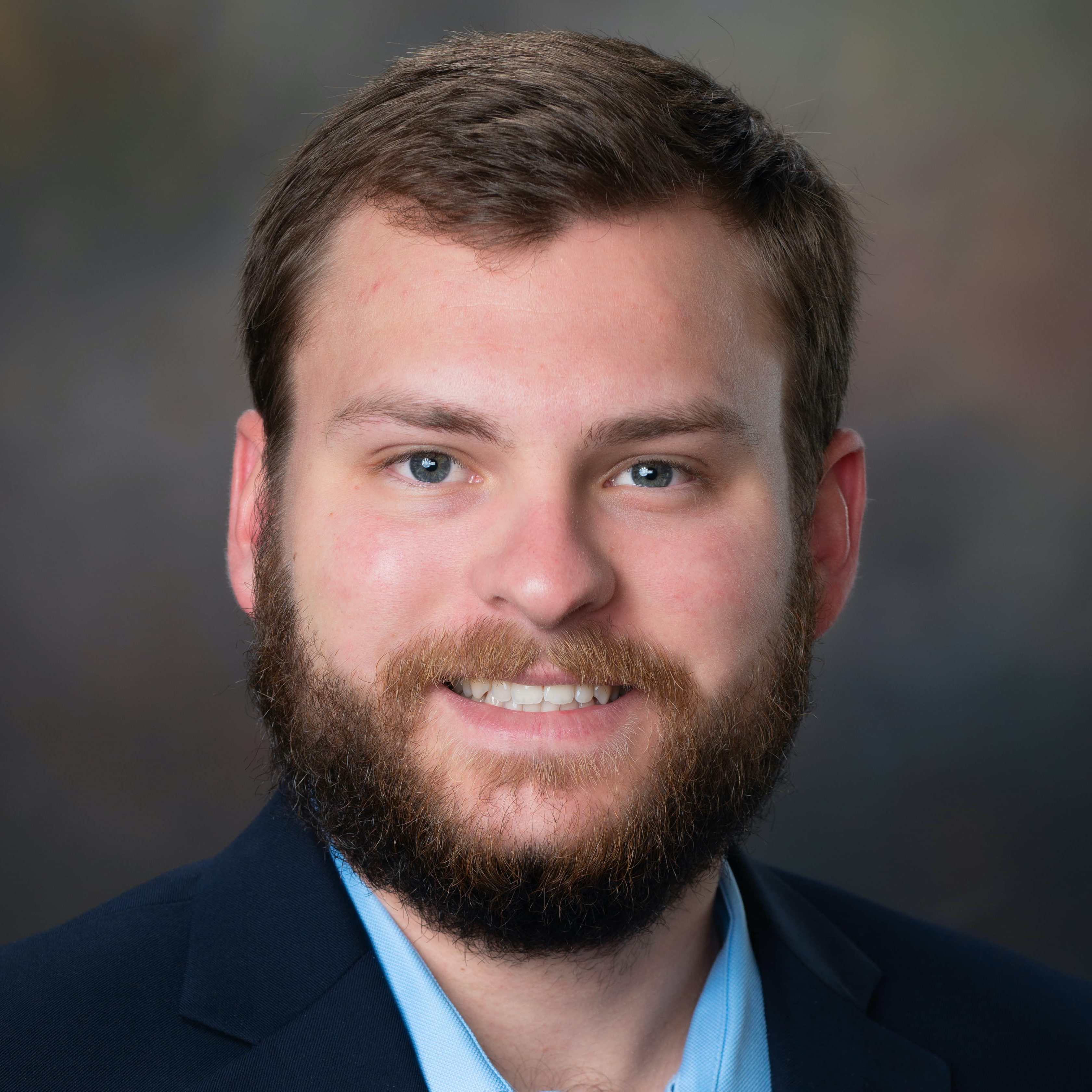 Troy LoBue
Troy LoBue
Auburn University
College of Veterinary Medicine
Pathobiology
Research Focus: "My research focuses on analyzing DNA sequencing data to discover African American genetic factors contributing to ethnic breast cancer disparities.
What are your long-term goals/plans? “In the future I hope to continue similar work to identify novel genetic factors that influence risk for multiple genetic conditions.”
Research Impact: “My research could lead to the discovery of novel genetic targets for screening and therapeutic applications for breast cancer prevention and treatment.”
What keeps you motivated? “Knowing that there are millions of people born with a variety of genetic conditions with no cure or treatment is my motivation to continue to advance our understanding of genetic disease etiologies.”
Favorite thing to do in your spare time? “In my spare time I love to get out on the golf course and enjoy the outdoors.” -
Skye Opsteen
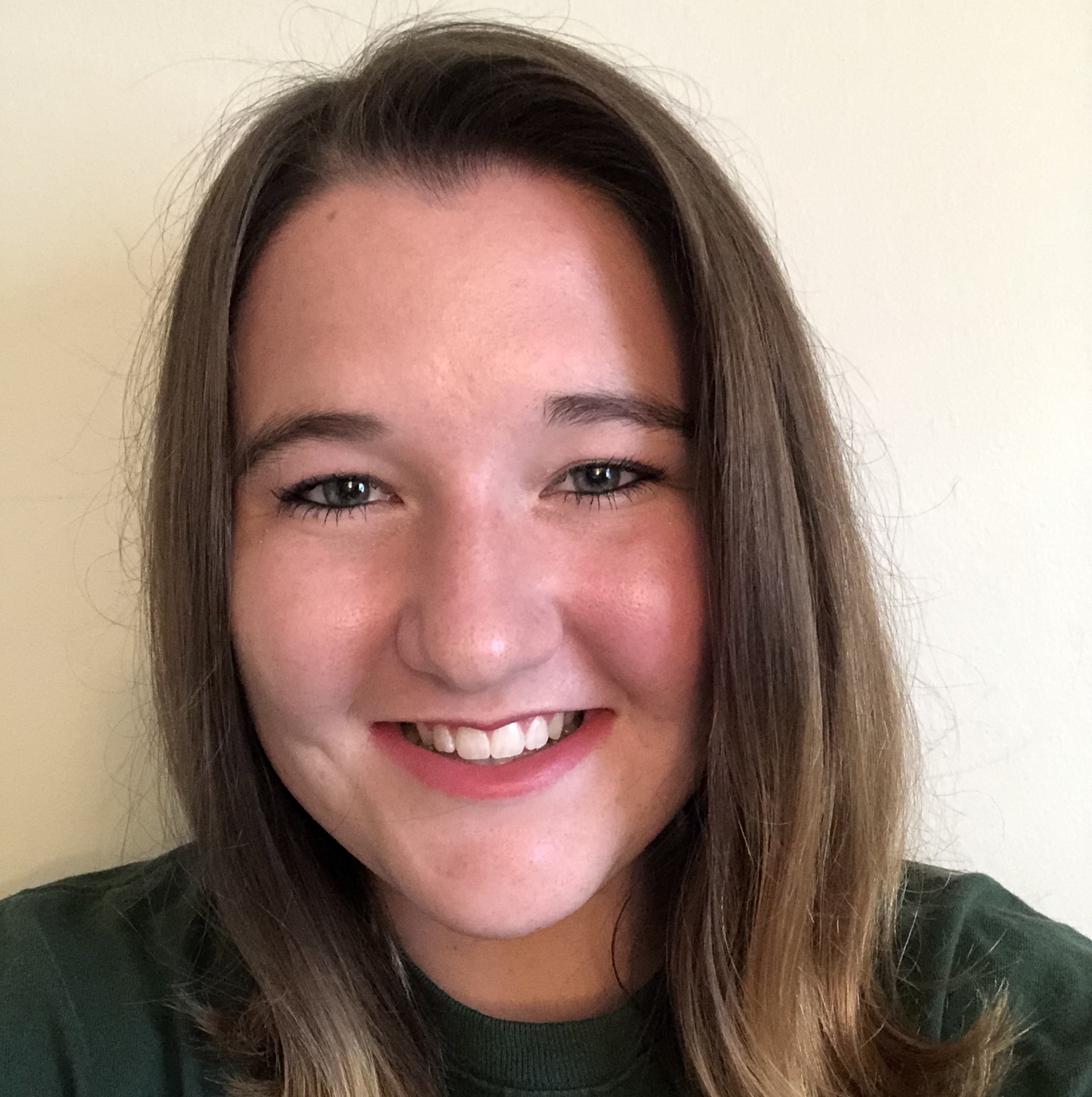 Skye Opsteen
Skye Opsteen
University of Alabama at Birmingham
Heersink School of Medicine
Infectious Diseases
Research Focus: “I work with Dr. Nathan Erdmann in the Department of Medicine, Division of Infectious Diseases and am exploring the immune response to both acute and long COVID in people living with HIV.”
How I became interested in this opportunity with the CCTS: “I've been involved in HIV-immunology research for almost 5 years and have actively sought out opportunities to explore my research interests further throughout my undergraduate and medical education. During medical school, several of my mentors suggested the CCTS TL1 program to me. The program appealed to me because it funds a full year of dedicated research into diseases that disproportionally impact the Deep South and includes professional development opportunities and graduate coursework that complement my research focus. The CCTS TL1 program is not only supporting my exploration of the field of infectious diseases at a deeper level but also providing me with opportunities to learn more about how to provide the most compassionate and knowledgeable care for my future patients.”
What are your long-term goals/plans? “As of now, my plans after graduating from the UAB Heersink School of Medicine include attending a research-focused residency program and subsequently completing a fellowship in Infectious Diseases. Broadly, I see myself working at an academic institution, where I will 1) dedicate my time to serving vulnerable populations such as people living with HIV, 2) contribute to new discoveries in infectious diseases research, and 3) mentor future generations of physician-scientists.”
What keeps you motivated? “As a first-generation student from a medically underserved city, I am extremely motivated to advance my career as a physician-scientist so that I can continue advocating for students who are underrepresented in research/medicine and addressing research questions that will reduce health and education disparities in underserved areas. Additionally, I find my area of research extremely interesting and intrinsically rewarding. I really enjoy exploring the complexities of the immune system and advocating for stigmatized populations, which makes each day of going to the lab, classes, seminars, etc., both meaningful and impactful to me.”
Favorite thing to do in your spare time? “If I had to choose one activity, I would say indulging in various forms of science fiction media (i.e., books, movies, tv shows, podcasts). I recently finished a sci-fi radio drama series called Relativity, which is written by and features UAB’s Lee Shackleford. The story follows a doctor stranded in space, whose only form of communication is with the ship’s computer and the flight director on Earth. The storyline was very engaging and kept me wondering about all the “what-ifs”, which is one of the reasons why I enjoy science fiction so much. I enjoy learning about the creative process and diving deeper into the worlds that sci-fi writers create.” -
Monica Pasala
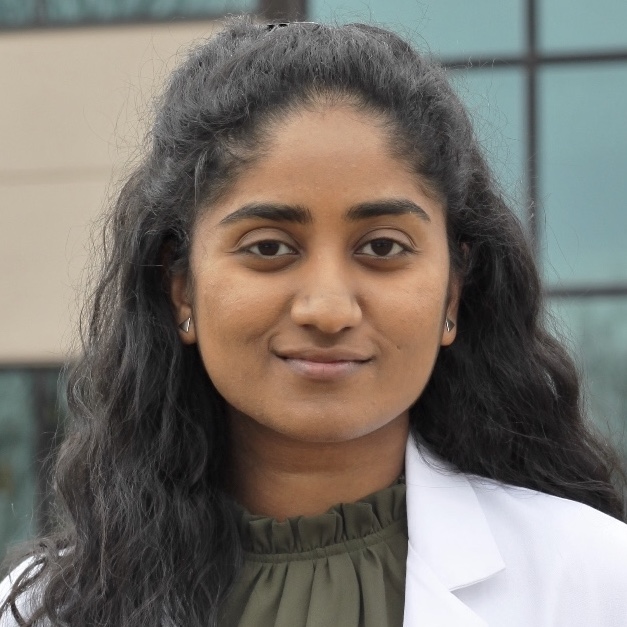 Monica Pasala
Monica Pasala
University of Alabama at Birmingham
Heersink School of Medicine
Medicine
Research Focus: "As individuals age, there is a progressive decline in muscle mass and increase in visceral adiposity. Specifically, sarcopenia is defined as the presence of low muscle mass and function. Due to limited knowledge of impact of sarcopenia among adults with hematologic malignancies, we recently completed a systematic review of the literature and meta-analysis that showed sarcopenia was associated with 78% increased risk all-cause mortality among patients with hematologic malignancies. Other studies have shown that excess visceral adiposity is independently associated with worse overall survival among cancer patients. However, their combined influence on treatment related toxicities and specifically among older adults with multiple myeloma remains unclear. Our central hypothesis is that body composition variables can be used to reliably identify older adults with increased risk of toxicities. Given the advancements in body composition segmentation methodology and availability of automated/semi-automated tools, this information can be used to inform treatment decision making and guide appropriate interventions."
How I became interested in this opportunity with the CCTS: "In 2015, I started working at the Mitchell Cancer Institute (MCI). I came to learn that the donors for the institute wanted patients to be treated in the same building that cancer research was being conducted. Therefore, the architect designed the building using large glass windows where patients walking into the building can see researchers working. Conducting research while being able to see patients through those large glass windows was my biggest motivation. During my time at MCI, I realized the true beauty of translational research, where researchers take discoveries made in the laboratory and use them to improve the health of patients. The CCTS TL1 fellowship allows me to have dedicated time to pursue my interest in translational research."
Here’s how I plan to leverage this time with the CCTS: "I am using this time to conduct research and be mentored by a physician that has a medical career with heavy involvement in academic research. In turn, I believe this program will enhance my chances of being a physician with a successful research career."
My Dream Career/Job: "I was born in a small village on the east coast of India, where access to basic medical care was hours away. Many people in that village died from preventable illnesses and due to the lack of proper medical care. Naturally, my passion for medicine started with the desire to help people. My research journey thus far has afforded tremendous insight into the realm of scientific inquiry and has solidified my decision to pursue a medical career with heavy involvement in academic research. As I immersed myself in research, I realized that as a physician I might be able to help several hundred patients, but as a physician researcher I would have the potential to help thousands or even millions of people."
Favorite Movie: "My favorite movie is Forrest Gump. It’s a classic that I have probably watched more times than I would like to admit. My favorite line is “Life is like a box of chocolates. You never know what you’re gonna get.”
Favorite thing to do in your spare time? "I love to dance, hike, and cook. I have recently taken up gardening. It’s not going too well but check back in about a month." -
Beenish Patel
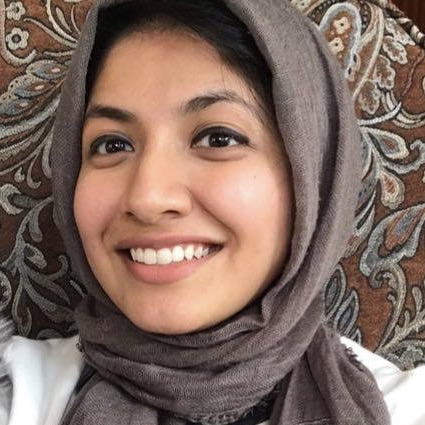 Beenish Patel
Beenish Patel
Tulane UniversitySchool of Science and Engineering
BioinnovationResearch Focus: My predoctoral research involves developing machine learning models using multi-modal data fusion methods to understand neurodevelopment of psychiatric disorders. Specifically, my dissertation focuses on the development of multimodal graph neural network models to better understand the pathology of psychiatric disorders. My primary research project involves understanding the neurogenetic mechanism of psychiatric disorders using fMRI, genomic, and epigenomic profiles in order to identify new and reliable biomarkers of the illness to improve diagnosis and treatment for patients.What are your long-term goals/plans? After obtaining my doctorate degree, my long-term career goal is to pursue entrepreneurship and to direct translational research as an independent scientist working on addressing healthcare disparities in the mental health arena.
Here’s the possible impact of my research: Since the Deep South has a high prevalence of mental illness and the lowest access to care, the development of technologies that will aid in treatment adherence and proper diagnosis is vitally important. My dissertation focuses on addressing mental health disparities in the Deep South by specifically developing machine learning software to increase patient adherence to medication and improving diagnostics.
My Dream Career/Job: Biotech Entrepreneur
Favorite Movie or TV Show: Law and Order
Favorite thing to do in your spare time? Try out new recipes and cook for my family and friends
Favorite Podcast: This American Life
-
Jesse Rattan
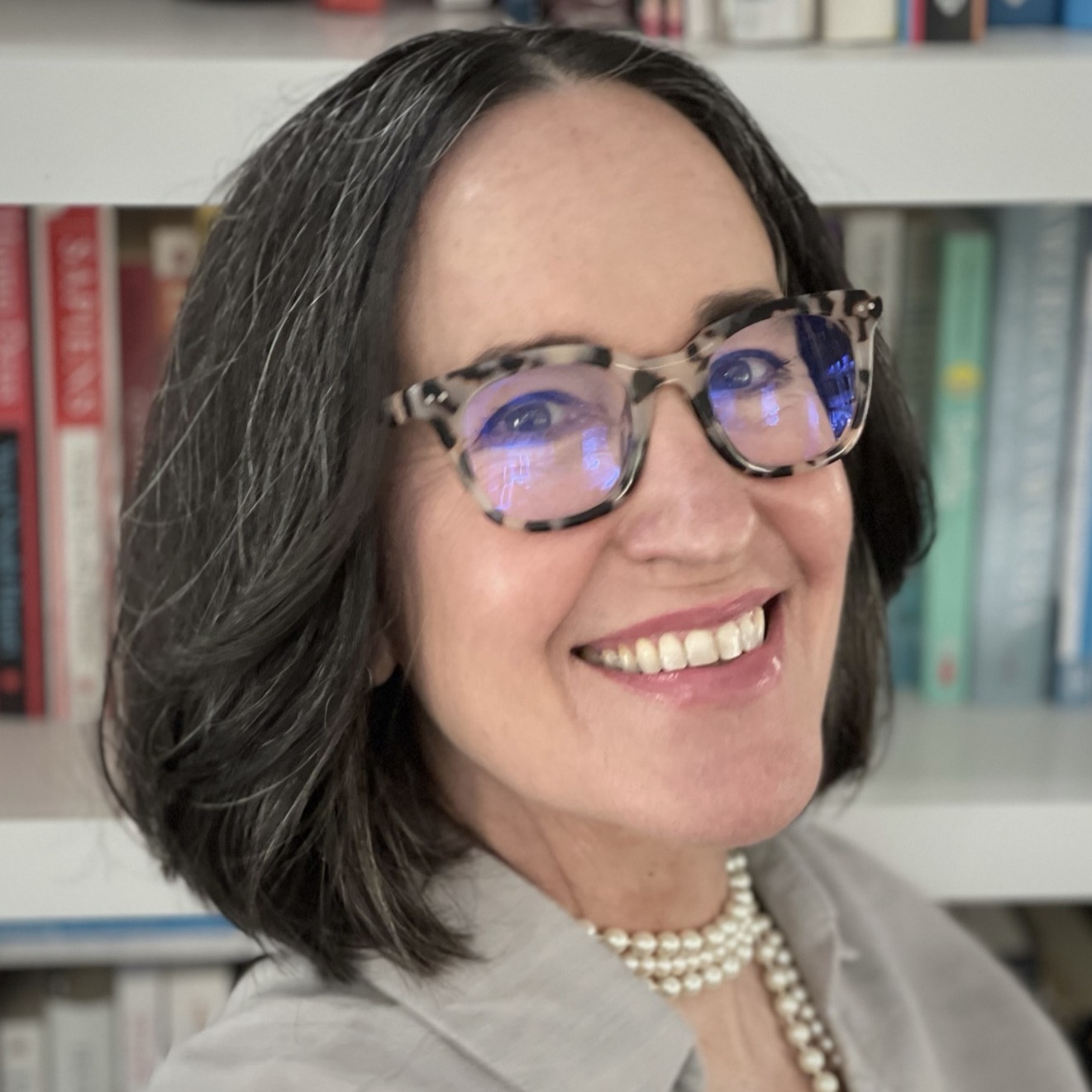 Jesse RattanUniversity of AlabamaCapstone College of Nursing
Jesse RattanUniversity of AlabamaCapstone College of Nursing
NursingResearch Focus: I am focused on racial inequities and injustices related to pregnancy-related care that contribute to Alabama's high maternal mortality. More than half of maternal mortality occurs after childbirth.For my project, which is also my dissertation, I am exploring patient and provider factors that predict postpartum care in a large medical record dataset from UAB Hospital. I will follow up with interviews with birthing people who received postpartum care and those who did not to understand their post-birth experiences with healthcare.
Why my science matters to me: I believe that for social science to matter, it must be in the service of social change. I am excited to use my scientific training as a tool for health justice.
How I became interested in this opportunity with the CCTS: I have spent most of my career working in international women’s health in the global south, specifically maternal health programs. I really wanted to work on maternal mortality in the American South, specifically how it unfairly affects Black birthing people. I was very lucky to stumble upon research being conducted by a team at UAB on a large EHR dataset, exploring predictors of maternal mortality, with a special focus on racial disparities. I also found the TL1 program at the same time. I am now using that team’s dataset for my TL1 project and my dissertation.
Here’s how I plan to leverage this protected time with the CCTS (What are you hoping to achieve?): The TL1 program has allowed me to develop and conduct mixed-method research for my dissertation. The research is more extensive than what I intended (both qual and quant), and this year gives me space to do this bigger project.
My Dream Career/Job: My dream career is working at an inclusive Femtech company to develop products, devices and services related to sexual and reproductive health that focuses on women but includes other genders and identities.
What keeps you motivated? That my research might actually contribute to developing focused solutions for the unjust racial disparities in maternal and reproductive outcomes in Alabama.
Favorite Podcast: Ezra Klein’s podcast
